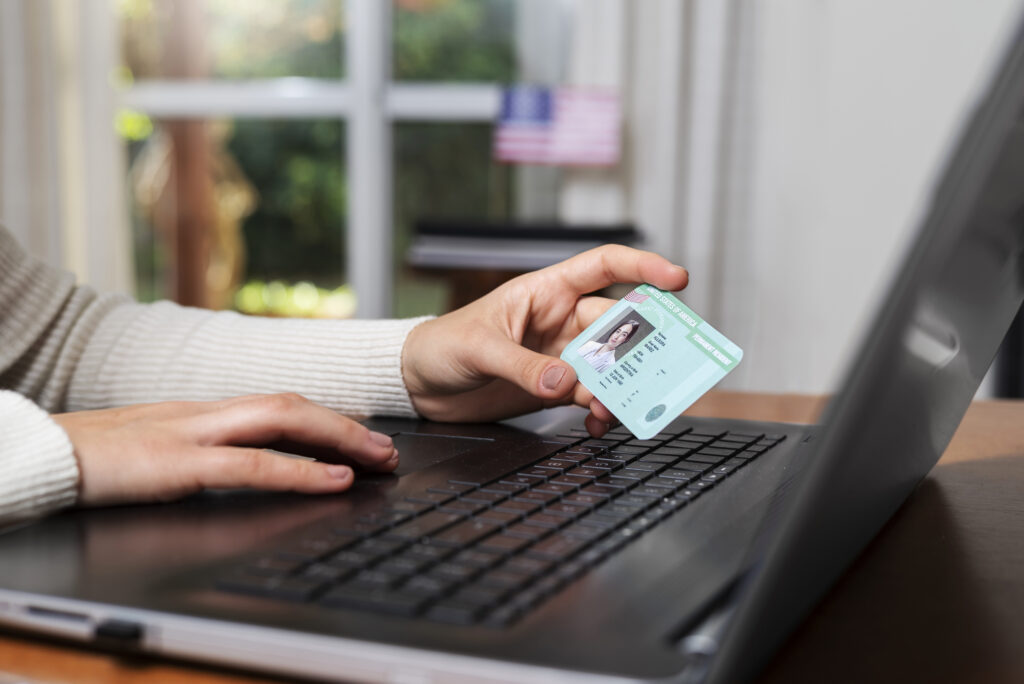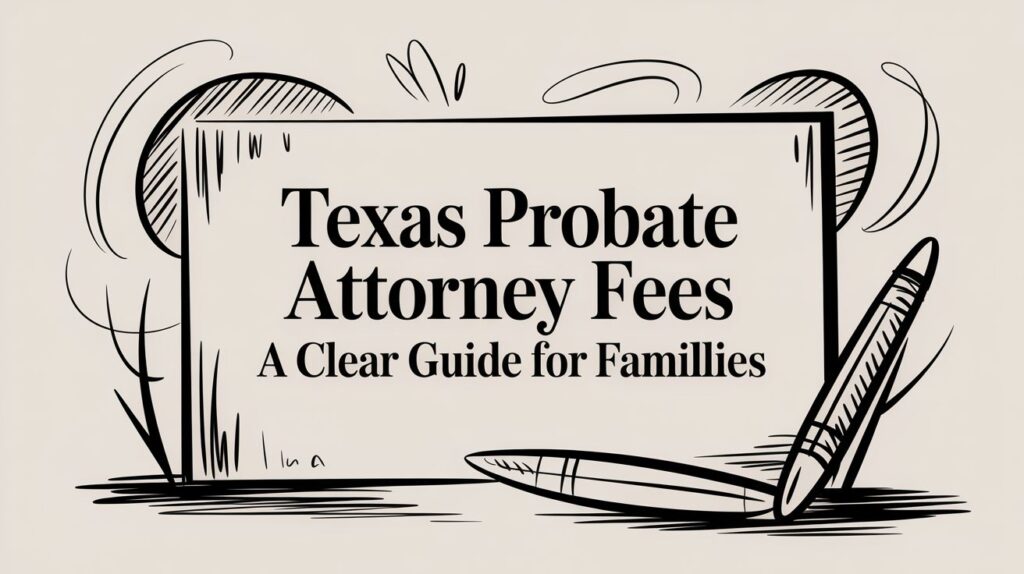If you’re navigating the probate process and wondering how to notarize an executor probate document in Texas, you’re not alone. The legal paperwork involved in settling a loved one’s estate can feel overwhelming—especially if you’ve never handled anything like this before. And while it might sound like a minor detail, notarizing executor documents is a critical step in ensuring that your authority is legally recognized by the court and third parties like banks and title companies.
In this comprehensive guide, we’ll take you through the step-by-step process of how to notarize an executor probate document in Texas. We’ll break down legal terminology, clarify common misconceptions, and even include real-life stories from Texas families who’ve been through the process. By the end, you’ll feel more confident in handling this key requirement—and better equipped to protect the estate and your role as executor.

Why Notarization Matters in the Probate Process
Before diving into how to notarize an executor probate document in Texas, it’s essential to understand why notarization matters. Texas probate courts don’t just take your word that you’re the executor—you have to prove it. Notarization gives legal credibility to the documents you’re submitting, signaling to the court and others that the document is legitimate, voluntary, and properly executed. It serves as a protective measure that helps prevent disputes over forgery, coercion, or unauthorized actions during theprobate process.
What a Notary Does (and Doesn’t Do)
In Texas, a notary public is authorized by the state to witness signatures and administer oaths. Their role in probate documents is to:
- Confirm the identity of the person signing the document
- Verify that the person is signing it voluntarily
- Apply their notarial seal and record the action
But remember: a notary does not verify the content of the document itself. Their job is to certify the authenticity of the signature and the process—not the truth of what’s written inside.
Real-Life Example: How One Missing Notary Seal Delayed a Home Sale
Consider Elena, a 45-year-old teacher fromBexar County who was named executor of her father’s estate. After probate was opened, she prepared a document transferring the family home to herself and her siblings—but forgot to have it notarized before submitting it to the title company.
Because the title company required notarized proof of her authority, the transaction stalled. Elena had to make an emergency appointment with a notary and refile documents with the court. The delay cost the family several thousand dollars in holding costs and nearly ruined a closing.
That one overlooked notary stamp made a big difference. So if you’re still wondering whether it’s worth learning how to notarize an executor probate document in Texas—the answer is yes, and it could save you serious headaches.
Step 1: Determine Which Probate Document Requires Notarization
Not every document filed in aprobate case requires a notary, but several critical ones do. Knowing which ones need to be notarized is the first step in staying organized and compliant.
Common Documents That Require Notarization in Texas Probate:
- Oath of Executor or Administrator
- Inventory, Appraisement, and List of Claims
- Application for Independent Administration
- Executor’s Deed
- Affidavit of Heirship (when used)
- Letters Testamentary (received from the court but based on notarized filings)
Before submitting anything, double-check with your attorney or the probate court clerk to ensure that you know what must be notarized.
Step 2: Complete the Document Before Notarization
This is a critical detail many people overlook. You must fill out the document completely before it is notarized. The notary’s job is to witness the signing—not to help you fill out legal paperwork or correct mistakes.
What You Should Do Before Visiting the Notary:
- Review the entire document for accuracy
- Double-check names, addresses, and legal descriptions
- Make sure all pages are included
- Leave the signature section blank until you’re with the notary
- Bring proper identification

Failing to prepare the document properly could result in a rejected filing and more time spent correcting the error.
Step 3: Find a Qualified Notary Public in Texas
There are thousands of notaries across Texas, and finding one isn’t difficult. The key is choosing one who is authorized, available, and familiar with legal documents.
Where to Find a Notary in Texas:
- Local banks and credit unions (usually free for members)
- Law offices
- UPS Stores or FedEx Office locations
- County clerk’s office
- Online notaries (Texas allows remote notarization under certain conditions)
Make sure the notary is commissioned in Texas and that their commission is current. You can verify this through the Texas Secretary of State’s website.
Step 4: Appear in Person (or Remotely) Before the Notary
Texas allows both in-person and remote online notarizations. Whichever route you choose, you must be physically present (in-person or on camera) with the notary at the time of signing.
In-Person Notarization:
- Bring a valid, government-issued photo ID
- Do not sign the document until you are instructed to do so
- The notary will witness your signature, apply a seal, and fill out the notarial certificate
Remote Notarization:
- Schedule a session with a certified online notary
- Use a platform that meets state requirements (e.g., Notarize.com, NotaryCam)
- Verify your identity through security questions and camera ID
- Sign electronically and receive a digital copy with a secure seal
Remote notarization is especially helpful for executors who live out of state but are handling Texas probate.
Step 5: File the Notarized Document with the Probate Court
Once the executor probate document has been notarized, it’s time to file it with the court. You can usually file:
- In person at the county probate clerk’s office
- By mail with a return receipt
- Electronically, if the court allows e-filing (available in many Texas counties)
Filing Tips:
- Include a cover letter or filing slip with your case number
- Always confirm with the court that the filing was accepted
- Request a stamped copy for your records

If the document is part of a larger packet—such as an inventory or closing affidavit—make sure the entire submission meets court standards.
Real-Life Story: A Smooth Filing Thanks to Proper Notarization
After her mother passed away in Travis County, Lisa stepped up as executor. Guided by her attorney, she prepared the Oath of Independent Executor and had it notarized at her local bank. The document was filed with the court clerk the same day. Within a week, Lisa received her Letters Testamentary—making her the official legal representative of the estate.
Because Lisa followed the steps for how to notarize an executor probate document in Texas correctly, the probate process moved forward without delay. The family avoided disputes and transferred assets efficiently—all because they handled one detail with care.
Step 6: Keep a Copy for Your Records
Once the court accepts the document, make sure to keep a copy in your executor file. You’ll likely need to present notarized proof of your authority to:
- Banks and financial institutions
- Title companies
- Insurance companies
- Investment brokers
- Government agencies like the IRS or Social Security Administration
Keeping both a physical and digital copy ensures you’re ready whenever someone requests documentation.
Common Mistakes to Avoid When Notarizing Probate Documents
Even a small mistake can cause big delays. Avoid these common missteps when learning how to notarize an executor probate document in Texas:
- Signing before you meet with the notary
- Using an expired notary or ID
- Failing to fill out the document completely
- Forgetting to include the notary’s full certificate and seal
- Not checking court-specific requirements
Always double-check your work—and when in doubt, ask the clerk or your attorney for help.
What If You’re Out of State or Overseas?
One of the most common concerns is whether someone can notarize executor documents from outside Texas. The good news is, remote notarization solves this problem.
For Out-of-State Executors:
Texas law allows remote notarization for executor probate documents, as long as you use a state-approved provider and meet the ID verification requirements.
For Overseas Executors:
Things get a little more complicated. You may need to:
- Use a U.S. embassy or consulate for notarization
- Request an apostille for use in the U.S. legal system
- Hire a local notary who understands international compliance

In these situations, it’s wise to work closely with a probate attorney in Texas to ensure your paperwork won’t be rejected.
Final Thoughts: Why Getting It Notarized the Right Way Matters
When dealing with the court system, especially in probate, every signature matters. Knowing how to notarize an executor probate document in Texas gives you more than just peace of mind—it gives you legal power.
Following the right steps, avoiding common mistakes, and understanding the process ensures your role as executor is respected by the court and other institutions. Whether you’re managing a modest estate or a complex portfolio, handling the paperwork properly helps protect your family, your time, and your loved one’s legacy.
Don’t cut corners with notarization. It’s one of those details that can make or break the probate experience in Texas. Take it seriously—and you’ll move through the process with fewer roadblocks and more confidence.








